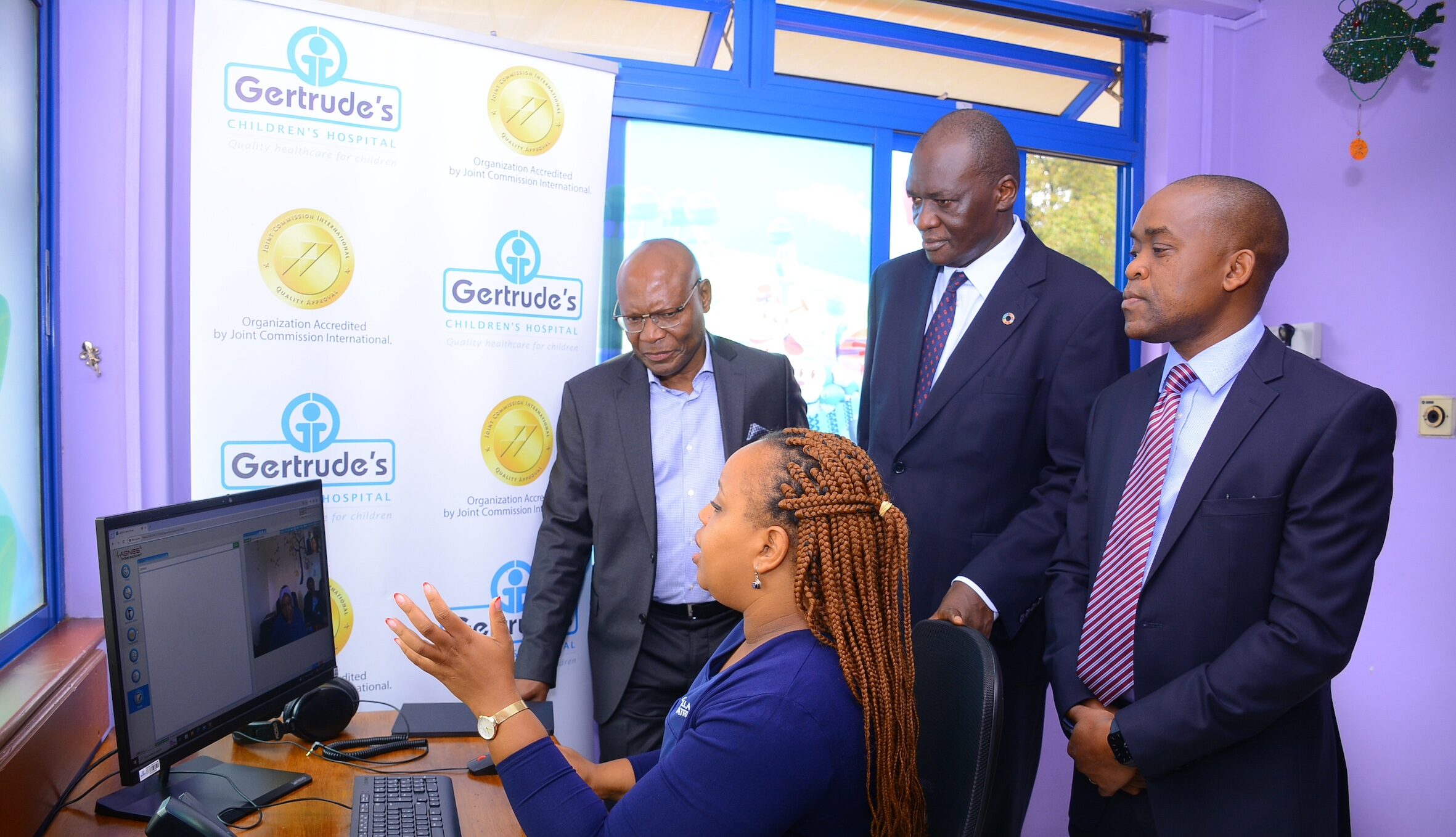advertisement
Daktari Smart Telemedicine Initiative Targets 32,400 Kids

Daktari Smart, a telemedicine programme run by Gertrude’s Children’s Hospital, Gertrude’s Hospital Foundation, and the M-PESA Foundation, aims to reach and treat at least 32,400 children in five (5) counties in the initial phase.
In the next five years, Gertrude’s Children’s Hospital, and its Foundation targets to impact 5 million children in the region, and directly provide care for 45,000 children who are suffering from rare and complex non-communicable diseases such as cancer and cardiovascular disease.
Since it’s launch in 2021, the Daktari Smart initiative has reached 10,000 children with specialised paediatric medical care. The programme is providing services in Narok, Samburu, Baringo, Homa Bay, and Lamu counties.
advertisement
Speaking during the commemoration of World Health Day, Gertrude’s Children’s Hospital CEO, Dr Robert Nyarango, encouraged healthcare stakeholders to consider utilizing telemedicine technology to provide quality affordable care while increasing coverage and lowering preventable childhood deaths.
“The Daktari Smart programme has so far been implemented in 5 counties, allowing 10,000 children to access specialised paediatric care that they would otherwise never have received. There is an opportunity to serve more children through working together as stakeholders to increase the number of counties on Daktari Smart to support the limited number of paediatricians and other specialists,” said Dr Nyarango”.
This year’s World Health Day theme, “My Health, My Right” calls for consideration of health as a human right to which everyone should have access. As part of the campaign, the World Health Organisation recommends increasing accessibility to healthcare services.
advertisement
A 2022 study, the health workforce status in the WHO African Region: findings of a cross-sectional study published in the BMJ Global Health, found that with an average of 13.8 healthcare workers per 10,000 people, Kenya has significantly fewer professionals in the healthcare sector than the WHO’s recommended 44.5 doctors, nurses and midwives for every 10,000 people. This leads to difficulties in accessing healthcare services especially considering the ratio increases when it comes to specialists.
Dr Patrick Amoth, Ag. Director General for Health, Ministry of Health, emphasised the role that technology will play in improving healthcare access promising policy support to telemedicine and other health technology initiatives.
“The power of telemedicine is amazing because it can help reach people in underserved communities with health services. We are now in the process of developing regulations to operationalise e-health, m-health, and telemedicine with careful consideration of our laws and data protection and confidentiality. The recently inaugurated board of digital health has been tasked with developing these regulations within the next 6 weeks for submission to parliament for approval,” said Dr Amoth.
advertisement
Karen Basiye, Director Sustainable Business and Social Impact, Safaricom PLC, called for partnership and investment to sustain the impact managed through health-tech initiatives such as the Daktari Smart programme.
“The role of technology in healthcare is improving access to healthcare through leveraging digital interventions. We need to get partners and financing to support technology initiatives that improve healthcare accessibility and inclusivity. At Safaricom, we are prioritising creation of digital health solutions that bring together multiple advancements to improve healthcare access while reducing costs,” said Basiye.
The Daktari Smart telemedicine kit comprises electronic medical devices such as the Electronic Stethoscope, Vital Signs Monitor, Derma Scope Camera, Ultrasound Machine, inner ear observing Otoscope, and Electrocardiogram (ECG) to check heart rhythm and electrical activity. Unlike conventional video conferencing, the Daktari Smart kit allows healthcare workers at the local partner facilities to place the devices on the patient and allowing specialist doctors at Gertrude’s Children’s Hospital to make a diagnosis and thereby offer advanced medical care.